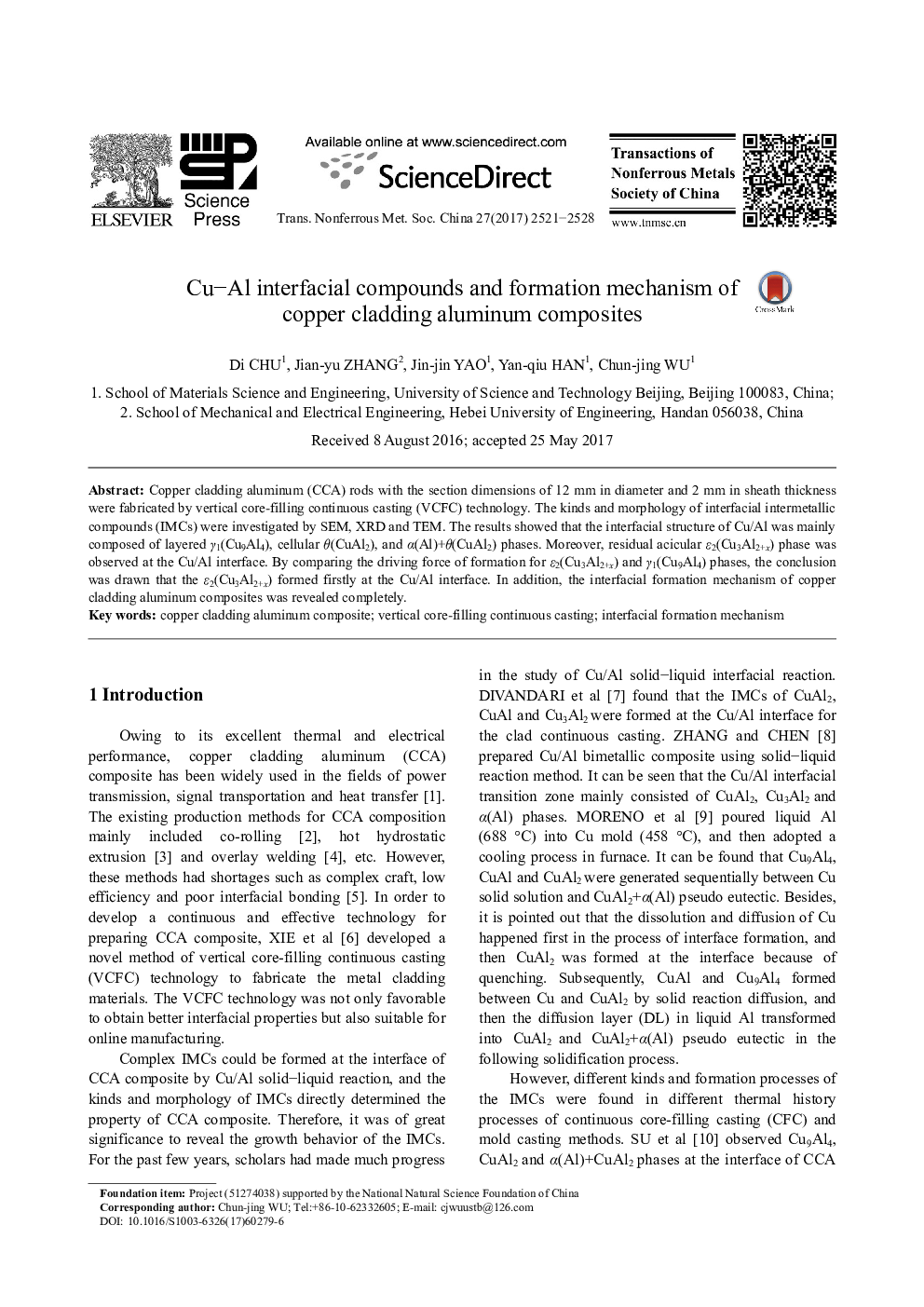| Article ID | Journal | Published Year | Pages | File Type |
|---|---|---|---|---|
| 8011786 | Transactions of Nonferrous Metals Society of China | 2017 | 8 Pages |
Abstract
Copper cladding aluminum (CCA) rods with the section dimensions of 12 mm in diameter and 2 mm in sheath thickness were fabricated by vertical core-filling continuous casting (VCFC) technology. The kinds and morphology of interfacial intermetallic compounds (IMCs) were investigated by SEM, XRD and TEM. The results showed that the interfacial structure of Cu/Al was mainly composed of layered γ1(Cu9Al4), cellular θ(CuAl2), and α(Al)+θ(CuAl2) phases. Moreover, residual acicular É2(Cu3Al2+x) phase was observed at the Cu/Al interface. By comparing the driving force of formation for É2(Cu3Al2+x) and γ1(Cu9Al4) phases, the conclusion was drawn that the É2(Cu3Al2+x) formed firstly at the Cu/Al interface. In addition, the interfacial formation mechanism of copper cladding aluminum composites was revealed completely.
Related Topics
Physical Sciences and Engineering
Materials Science
Metals and Alloys
Authors
Di CHU, Jian-yu ZHANG, Jin-jin YAO, Yan-qiu HAN, Chun-jing WU,
